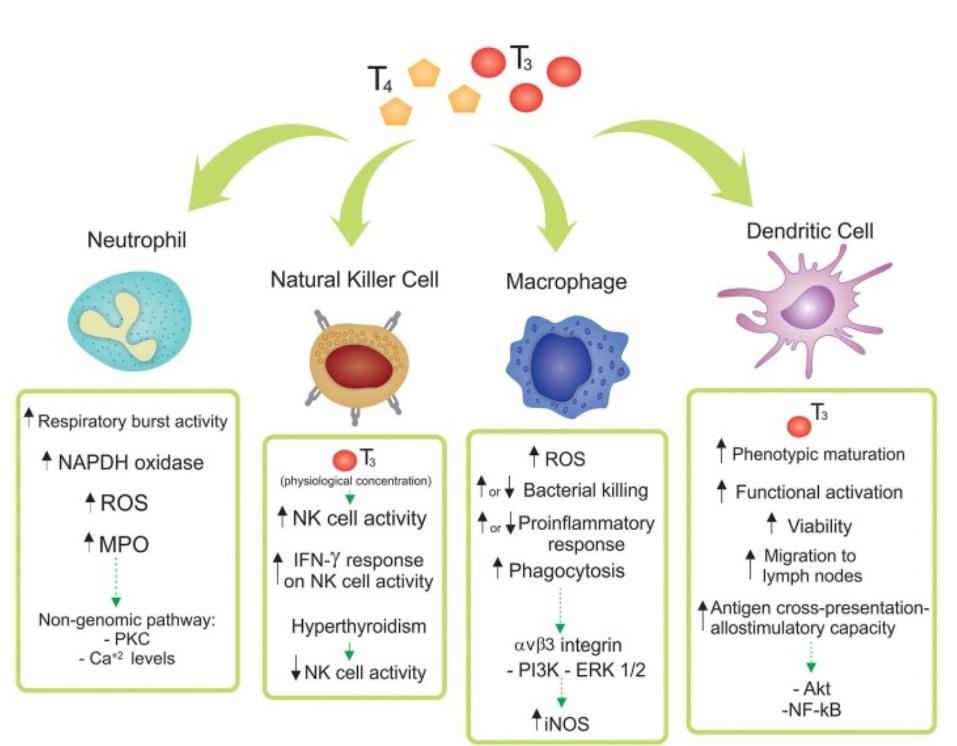Your Thyroid Affects Many Of Your Bodily Functions
In this article we wish to address some of the other things that the thyroid can influence. We often do not think about other problems beside the common problems such as weight gain, fatigue, and hair loss. The thyroid and its hormones have a widespread effect on virtually every organ system, organ, tissue, and cell in the body.
Thyroid hormones also have the unique ability to have direct effects on DNA expression like steroid hormones such as estrogen, testosterone, and cortisol. Therefore, the effects are deep, profound, and widespread. So, let’s explore some of these other influences and health conditions that can be tied into thyroid and its hormonal issues.
Your Thyroid Can Elevate Cholesterol and Triglyceride Levels
This commonly overlooked problem can be due to poor thyroid function. Low thyroid (hypothyroid) and Hashimoto’s thyroiditis can impair the liver cells regulation of cholesterol metabolism. The liver is the primary organ of cholesterol production. As a matter of fact, one of the earliest signs of hypothyroidism is elevated cholesterol.
A hypothyroid slows the liver’s ability to process your LDL, your “bad” cholesterol and slows the conversion of the “bad” cholesterol to HDL which is your “good” cholesterol. Hypothyroid also increases the absorption of cholesterol from the digestive tract. There is also some evidence that low thyroid may also contribute to non-alcoholic fatty liver disease (NAFLD).
It May Increase Risk of Cardiovascular Problems
Hypothyroid can also lead to the formation of oxidized LDL. Oxidized LDL which is the “bad” cholesterol becomes even more damaging when oxidized. It can damage blood vessels, heart tissue and lead to increased plaquing of the arteries or hardening of the arteries. So, it increases the likelihood of a heart attack.
Additionally, with increasing plaquing over time there can be a potential increase in blood pressure. Blood pressure may over time increase as well due to a decreased production of compounds such as nitric oxide synthetase that can relax the muscle found in the lining of your arteries.
Generally, low thyroid can result in lowered heart rates. However, with Hashimoto’s if there is a “rapid” autoimmune attack on the thyroid follicles this potentially can release a large amount of mostly T4 (thyroxine) which may cause heart rate increases and heart palpitations. Improper levels of thyroid hormone replacement may also lead to palpitations.
There have been studies that also indicate that low thyroid function may result in abnormal muscular contraction of the large chambers of the heart called ventricular dysrhythmias. Remember thyroid hormones affect muscular function. It appears that heart muscle (cardiac muscle) is particularly sensitive to T3 levels as it cannot adequately convert T4 to T3 (refer to our prior newsletter for discussion of T3 vs. T4).
Also, It Can Even Cause Joint Pain, Joint Swelling, and Stiffness
It is not unusual for many with hypothyroid problems to have carpal tunnel syndrome and swelling of the small joints in your hands and feet.
One of the reasons this may occur is that most hypothyroid issues are caused by autoimmunity such as Hashimoto’s thyroiditis. There are often common underlying autoimmune mechanisms that can result in hypothyroidism and autoimmune related problems to the joints such as rheumatoid arthritis. It is common to find that people who have been diagnosed with a single autoimmune problem often have other autoimmune issues because they often share similar immune imbalances.
Likewise, It May Increase Muscle Pain and Weakness
According to authors of the book, Hypothyroid Myopathy, muscle pain (myalgia) and weakness affects almost 80% of people with hypothyroidism. It appears that there is often weakness in the shoulder and pelvic/hip areas. This may result in difficulty getting up from a seated position, climbing stairs, or combing your hair.
Thyroid hormones are critical to the proper, growth, development, regeneration, production of energy and relaxation/contraction rates of your muscles. Chronic problems with thyroid hormones may result in degeneration of your muscle tissue with an accumulation of connective tissue and glycosaminoglycans (tissue ground substance) and some enlargement of the muscle.
Your Thyroid Has an Impact on Bone Health
Hyperthyroidism can lead to osteoporosis. Imbalances in the enzymes that regulate T3 and T4 levels have found to be connected in some situations to osteoarthritis.
It Influences Your Immune System
The thyroid can also influence the production of white blood cells, the maturation, and the ability of these immune cells to respond adequately. Often with hypothyroid a person has a lowered immune system response. Lowered white cell counts or neutrophil counts can be associated with hypothyroid.
Additionally, as discussed in our previous newsletter on Hashimoto’s, a person with Hashimoto’s thyroiditis may also have some level of imbalance and function of the immune system.

And, It Affects Your Digestive System
Lowered thyroid function often leads to decreased motility throughout the digestive tract. Decreased motility in the large intestine often results in constipation. Decreased motility in the small intestine increases the likely hood of SIBO (small intestinal bacterial overgrowth) with its associated bloating and abdominal discomfort. Hypothyroid also decreases production of digestive enzymes and stomach acid to breakdown your foods adequately. This could lead to malabsorption of different nutrients and possibly anemia. Another interesting problem that develops with hypothyroidism is gallstone formation.
Additionally, Your Thyroid Has an Impact on Your Gait and Balance
In 2016, a study of 2,645 participants in Rotterdam, Denmark, found a remarkable connection between low thyroid and the patterns of balance and walking. In summary, those with hypothyroid had problems with balance and their pace of walking was generally slower, their legs were further apart, and it was difficult to walk heel-to-toe (tandem gait). The researchers found that these problems would disappear when proper thyroid hormone levels were restored. They suspect that the thyroid has an important influence on neurons found in certain sections of the brain particularly the cerebellum. Considering that poor balance plays an important role in hip fractures in the senior population, proper thyroid function is very important.
Furthermore, It Has Been Linked to Infertility and Reproduction Issues
Decreased thyroid function reduces the ability to release an egg from the ovary. Improper function also has a significant impact on the menstrual cycle and can lead to irregular cycles and excessive menstrual bleeding. Additionally, with decreased thyroid function there is increased difficulty in implantation of the fertilized ovum. In males, sperm quality and motility may be affected by low thyroid function.
Last, Your Thyroid Can Lead to Abnormal Cognitive and Emotional Behaviors
Hyperthyroid often leads to anxiety, nervousness, restlessness, increased or rapid breathing and poor sleep. Whereas, hypothyroid usually leads to more depression and fatigue. It is important to add that with an autoimmune problem such as Hashimoto’s there are times in which there is rapid inflammation and damage to the thyroid follicles causing a release of thyroid hormones into the blood stream. This rapid leakage of hormones is referred to as Hashitoxicosis. During this transient “leakage” many can experience anxiety, sweating, nervousness, heart palpitations and other “hyperthyroid” symptoms temporarily.
Summary
Evidently, the thyroid and its hormones have wide effects throughout the body. Oftentimes, we overlook the importance of the thyroid and role it plays in balancing the body. If you suspect you may have related health issues and want to learn more, please contact our office at (480) 732-0911. We are happy to be of assistance.
Check out our previous article on “How Stress and Minerals Imbalances Affects The Thyroid!”

